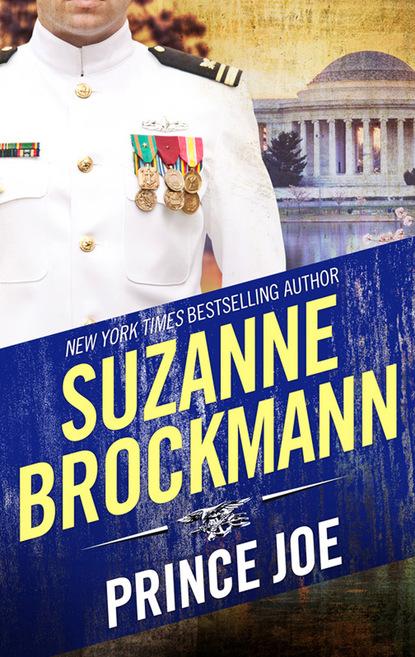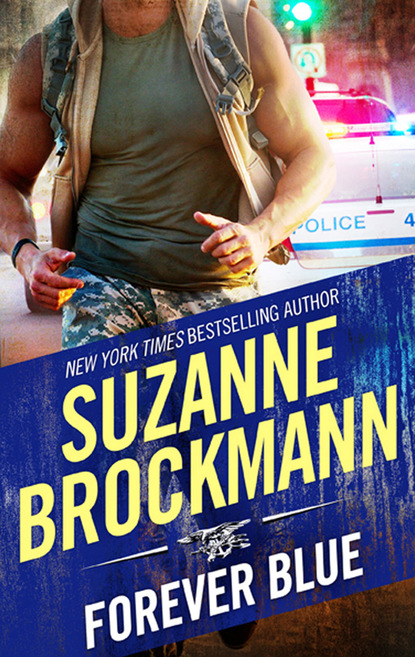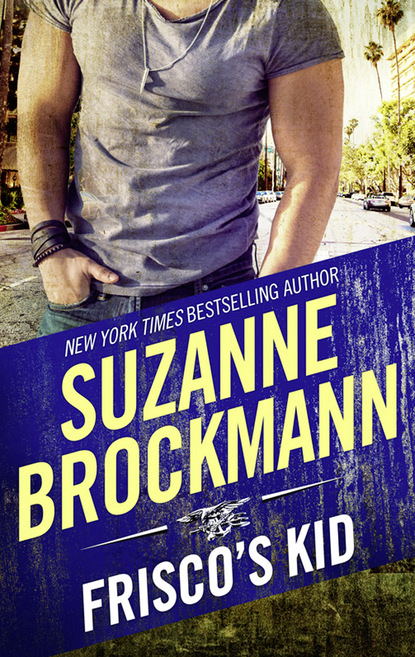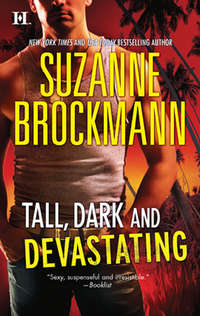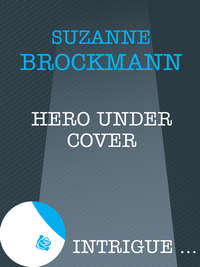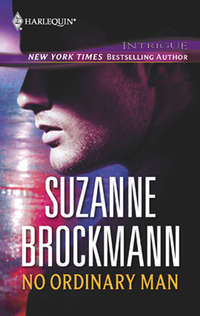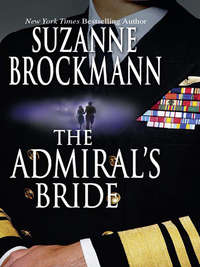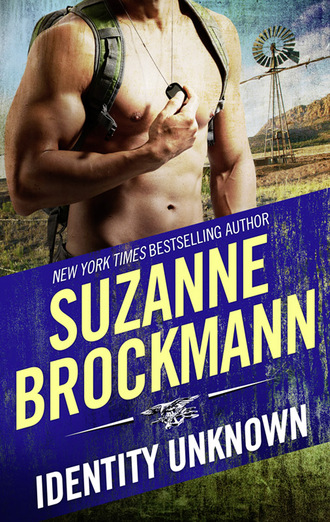
Полная версия
Identity: Unknown
He could remember that dream he’d just had, too, and he didn’t want to think about what it might mean.
He stood up, aware that the movement jarred him only slightly, and crossed to the air conditioner, turning it to a higher setting. The fan motor kicked in with a louder hum, and coolness hit him in a wave of canned air.
Slowly, deliberately, he sat back down on the edge of the bed.
He could remember the shelter. He could see Jarell’s smiling face, hear the sound of his cheerful voice. Hey, Mission Man. Hey, Mish!
He closed his eyes and relaxed his shoulders, waiting for memories of being brought into the shelter, waiting for memories of what had happened that night.
But there was nothing there.
There was only…emptiness. Nothingness. As if before he’d been brought to the First Avenue Shelter, he hadn’t existed.
He could feel a new sheen of perspiration covering his body despite the cooler setting of the air conditioner. He’d slept off whatever had ailed him—whether it was the result of alcohol or some other controlled substance or simply the blow he’d received to his head. In fact, he’d slept solidly for more than twenty-four hours.
So why the hell couldn’t he remember his own damned name?
Hey, Mission Man. Hey, Mish!
He stood up, staggering slightly in his haste to get to the mirror that covered the wall in front of a double set of sinks. He flipped on the light and…
He remembered the face that looked back at him. He remembered it—but only from the bathroom mirror at the shelter. Before that, there was…
Nothing.
“Mish.” He spoke aloud the nickname Jarell had given him. The word sent a small ripple of recognition through him again, as it had yesterday morning. But what kind of name was Mish? Was it possible that he remembered—very faintly—Jarell calling him that when he was first brought into the shelter?
Mish. He gazed into the unfamiliar swirl of green and brown that were his own eyes. What kind of name was Mish? Well, right now, it was the only name he’d got.
Mish splashed cold water on his face, then cupped his hand under the faucet and drank deeply.
What was he supposed to do now? Go to the police?
No, that was out of the question. He couldn’t do that. He wouldn’t be able to explain the .22 and that huge wad of money he was carrying in his boot. He knew—he didn’t know how he knew, but he did—that he couldn’t tell the police, couldn’t tell any one anything. He couldn’t let anyone know why he was here.
Not that he could have, even if he’d wanted to. He didn’t know why he was here.
So what was he supposed to do?
Check himself into a hospital? He turned his head, gingerly parting his hair to look at the gash on his head. Without yesterday’s fog of pain clouding his eyes, he knew with a chilling certainty that the wound on his head had been the result of a bullet’s glancing blow. He’d been shot, nearly killed.
No, he couldn’t go to a hospital, either—they’d be forced to report his injury to the police.
He dried his face and hands on a small white towel and went back into the main part of the motel room. His boots were on the floor near the bed, where he’d left them last night. He picked up the right one, dumping its contents onto the rumpled sheets. He turned on the light and sat down, picking up the .22.
It fit perfectly, familiarly into his hand. He couldn’t remember his own name, but somehow he knew he’d be able to use this weapon with deadly accuracy if the need ever arose. This weapon, and any other, as well. He remembered his dream, and he set it back down on the bed.
He pulled the rubber band off the fold of money, and the piece of white paper that was fastened along with it slipped free. It was fax paper; the slippery, shiny kind that was hard to read. He picked it up and angled it toward the light.
“Lazy Eight Ranch,” he read. Again, the name was totally unfamiliar to him. There was an address and directions to some kind of spread up in the northern part of the state. From what he could tell from the directions, it was about four hours outside of Santa Fe. The words were all typed, except for a note scrawled across the bottom in big round handwriting. “Looking forward to meeting you.” It was signed, “Rebecca Keyes.”
Mish opened the bedside-table drawer, looking for a telephone book. But the only thing inside was a Gideons Bible. He picked up the phone and dialed the front desk.
“Yeah, is there a train station or a bus depot in town?” he asked when the desk clerk came on the line.
“Greyhound’s just down the street.”
“Can you give me the phone number?”
He silently repeated the number the clerk gave him, hung up, then dialed the phone.
He was going to Santa Fe.
CHAPTER 2
Becca was out front, helping Belinda and Dwayne welcome a van load of guests, when she first spotted him.
He would have been very easy to miss—the solitary figure of a man walking slowly along the road. Yet even from this distance, she could tell that he was different. He didn’t have the nonchalant swagger of the cowboys that worked the nearby ranches. He didn’t carry the bags and sacks of crafts and jewelry that many of the local Native Americans took into Santa Fe to sell. He had only one small bag, efficiently tucked under one arm.
He turned into the Lazy Eight’s long drive, as somehow Becca had known he would.
As he drew closer, she could see he wasn’t wearing the Western gear that was the standard outfit of the Southwest. He had on the blue jeans, but he wore a new-looking T-shirt instead of a long-sleeved Western-cut button-down shirt. His arms were deeply tanned, as if he spent quite a bit of time outside.
His black boots weren’t the kind a real cowboy would wear, and he wore a baseball cap instead of a Stetson on his head.
From a distance, he’d looked tall and imposing. Up close, he merely looked imposing. It was odd, really. He had to be at least an inch or so shorter than six feet, and he was slender, almost slight. Yet there was a power about him, a quiet strength that seemed to radiate from him.
It may have been in the set of his shoulders or the angle of his chin. Or it may have been something in his dark eyes that made her want to step back a bit and keep her distance. His gaze swept across the drive, over the van and the luggage and the guests, over the ranch house, over the corral where Silver was waiting impatiently for another chance to stretch his legs, over Belinda and Dwayne, over her. With one quick flick of his eyes, he seemed to take her in, to memorize, appraise, and then dismiss.
Becca tried to look away, but she couldn’t.
He was impossibly, harshly handsome—provided, of course, that a woman went for the dark and dangerous type. His face was slightly weathered, with high cheekbones that even Johnny Depp would’ve been jealous of. His lips were gracefully shaped, if perhaps a shade too thin, too grimly set. His dark hair was longer than she’d first thought, worn fastened back at the nape of his neck. His face was smooth-shaven, but he had a scar on his chin that added to his aura of danger. And those eyes…
Becca watched as he approached Belinda. He spoke softly—too softly for Becca to hear his words—as he drew a piece of paper from his pocket.
Belinda turned and pointed directly at Becca. He turned, too, and once again those eyes were on her, coolly appraising.
He started toward her.
Becca came down the ranch office steps, meeting him halfway, pushing her beatup Stetson further back on her short brown curls. “Can I help you?”
“You’re Rebecca Keyes.” His voice was soft and accentless. His words weren’t a question, but she answered him anyway.
“That’s right.” His eyes weren’t dark brown as she’d first thought. They were hazel—an almost otherworldly mix of green and brown and yellow and blue. She was staring. She knew she was staring, but she couldn’t seem to stop.
“You sent me this fax?”
This time it was a question. Becca forced her gaze away from his face and looked down at the paper he held in his hands. It was indeed fax paper. She recognized the standard directions to the ranch, caught sight of the messy scribble of her handwriting at the bottom. “You must be Casey Parker.”
He repeated the name slowly. “Casey Parker.”
He didn’t look the way he’d sounded during their telephone interview. She’d pictured a larger, older, beefier man. But no matter. She needed a hired hand, and all of his references had checked out.
“Do you have any ID?” Becca asked. She smiled to soften her words and explained. “It has more to do with filling out employee tax forms than verifying that you’re who you say you are.”
He shook his head. “I’m sorry, I don’t. My wallet was stolen night before last. I got into some kind of fight and…”
As if to prove his story, he took off his hat and she could see a long scrape above his right temple, disappearing into his wavy dark hair. He had a bruise on his cheekbone, too. She hadn’t noticed it at first—it was barely discernible underneath the suntanned darkness of his skin.
“I hope you don’t make a habit of getting into fights.”
He smiled. It was just a slight upward curve of his lips, yet it managed to soften his harsh features. “I hope not, too.”
“You’re a week early,” Becca told him, hoping her briskness would counteract the effect his quiet smile and strange words had had on her, “but that’s good, because another hand quit on me yesterday.”
He was silent, just standing there watching her with those eyes that seemed to see everything. For a moment, she was almost convinced he could see back in time, to yesterday morning’s disastrous conversation with Justin Whitlow, and back even further to Rafe McKinnon’s quiet resignation. For a moment, she was almost convinced he could see her anger and her frustration and her defeat.
“You do still want the job…?” she asked, suddenly afraid that he didn’t like what he saw. After all, bad things always came in threes.
He turned, squinting slightly at the blinding blueness of the summer sky. His gaze swept across the valley, and Becca was certain that unlike most people, this man saw, really saw the stark New Mexico countryside. She was sure that with his intense hazel eyes, he could see the terrible, almost painful beauty of the land.
“You own this place?” he asked in his quiet voice.
“I wish.” The words came out automatically and all too heartfelt. As his eyes flicked in her direction, she felt exposed—as if, with those two little words, she’d given too much of herself away.
But he just nodded, his lips curving very slightly in the beginnings of a smile.
“Who does own it?” he asked. “I like to know the name of the man I’m working for.”
“The owner’s name is Justin Whitlow,” Becca told him. “He’s the one who pays your wages. But I’m the boss. You’ll be working for me. ”
He nodded again, turning back to gaze out at the vista, but not before she saw a glimmer of amusement in his dark eyes. “I don’t have a problem with that,” he said quietly.
“Some men do.”
“I’m not some men.” He looked back at her again, and Becca knew without a doubt that his words were true. This quiet, slender man with the watchful hazel eyes wasn’t just “some men.”
But exactly what kind of man he was, she didn’t know for sure.
* * *
“Hey, babe, long time no see.” Lt. Lucky O’Donlon of U.S. Navy SEAL Team Ten’s Alpha Squad pulled Veronica Catalanotto into his arms and kissed her hello as he came into the kitchen of his captain’s house.
“Luke. Hi. Did Frankie let you in?” Ronnie’s smile was warm and she seemed genuinely glad to see him. And since she was one of the top ten most beautiful, nicest, smartest women he’d ever met, that welcoming smile was going to be good for quite a number of fantasy miles. But then she went and ruined it by smiling exactly the same way at Bobby and Wes, who had come in behind him.
“How was your trip, boys?” she asked in her extremely classy British accent.
Captain Joe Catalanotto’s wife always called the intensely dangerous and highly covert operations that Alpha Squad was sent out on “trips.” As if they’d been away sightseeing or visiting museums.
Wes rolled his eyes. “Oh, man, Ron, we came really close to being cluster—”
Bobby’s size extra-extra-large elbow went solidly into his swim buddy’s side.
“Fine,” Wes said quickly. “It was fine, Ronnie. As always. Thanks for asking, though.”
Veronica wasn’t fooled. Her smile had faded, making her eyes look enormous in her face. “Is everyone all right? I mean, of course I’ve already asked Joe, but I’m not sure he’d even tell me if someone had been hurt.”
Ever since a year and a half ago, when the captain had nearly been killed by terrorists on what should have been a routine training mission, Veronica looked even more fragile than she had before when the squad went out on an op. She’d never found it easy to deal with the fact that her husband regularly left—sometimes without any warning—on highly dangerous missions. And now, after seeing Joe in a hospital bed, fighting for his life, it was even more difficult for her.
“Everyone’s fine,” Lucky said quietly, taking her hand. “Really.” Hotshot Cowboy Jones had jammed his ankle coming in too hard from a HALO jump, but aside from that, they’d all made it back to California in one piece.
Veronica smiled, but it was a little too bright and a touch too brittle. “Well,” she said. “Joe’s expecting you. He’s down on the beach.”
“Thanks.” Lucky squeezed her hand before he released it.
“Should I set extra plates for dinner?” Veronica asked evenly.
Lucky exchanged a look with Bobby. The captain had called them to this meeting on their pagers, sending them an urgent code. Whatever was up was important. Despite the fact that they’d only been home a day and a half, chances were they’d be going wheels-up again within the next few hours. And knowing the way Joe Catalanotto liked to lead from the front, it was more than likely he’d be shipping out with them. It seemed, however, that he hadn’t mentioned anything about that to his wife.
“I don’t think so, Ronnie,” Bobby told her gently.
“Probably not this time. It really smells great, though. Those cooking lessons are paying off, huh?”
“I was working all day,” she told him ruefully. “Joe made the stew.”
Damn. The captain’s wife may have been beautiful, smart and sexy as hell, but the woman was a menace in the kitchen.
“Are you sure you can’t stay?” she added. “There’s plenty and it’s quite good. There’s no way Joe and Frankie and I can possibly eat all of it.”
“Something’s come up. I think the captain’s planning to take us kids out on another field trip,” Wes told her before either Bobby or Lucky could muzzle him. Mr. Insensitive and Completely Oblivious. “So, yeah, we’re sure we can’t stay.”
“Well,” Veronica said tightly. “Off for another month, are you? Thanks for letting me know, although that’s something that would’ve been nice to hear from Joe.”
Double damn. Lucky cringed. “Ron, honest, I don’t know what’s up. If he didn’t mention anything to you, well, maybe we’re not going anywhere.”
Veronica visibly composed herself. And sighed as she looked up into their somewhat panicked faces. “Don’t look at me like that,” she chided them. “I’m stronger than you think. I knew what I was getting before I married him. I don’t have to like it when Joe leaves—isn’t that what you SEALs always say? I don’t have to like it, I just have to do it. Just take care of him for me, all right?”
She was pretending to hang tough, but her lower lip trembled an infinitesimal amount, giving her away. “Go,” she said. “He’s waiting. And you can tell him he doesn’t have to worry about breaking the terrible news to me anymore.”
Lucky followed Bobby and Wes out the kitchen door but hesitated on the deck, looking in through the window to watch her set only two places at the kitchen table—for herself and Frankie, her toddler son—still trying not to cry.
Lucky knew by the time Joe came back to the house, she’d be perfectly composed and probably even smiling.
Veronica’s acceptance of Joe’s career was a rare thing. SEALs had a divorce rate that was off the scale, in part because many of their wives simply couldn’t take the strain of being left behind again and again and again, waiting and worrying.
“I’m never getting married,” Lucky murmured to Wes as they went down the steps that led to the beach.
“You and me, Luck,” Wes agreed. “Unless Ronnie decides to leave the captain. Or am I already too late? Have you already started marking your territory in a big circle around her? No offense, Lieutenant, sir, but that kiss was just a little too friendly.”
Lucky was stung. “I was just saying hello. I’d never—”
“You’d never what, O’Donlon?” All six feet and four dangerous inches of Joe Cat materialized from the mist that was blowing in off the Pacific. One second they were alone and the next he was breathing down their necks. How the hell could a man built like a professional football player do that?
“I’d never hit on your wife,” Lucky told his captain bluntly. There was no point in trying to hide the truth from Joe Cat. Somehow he’d find out—if he didn’t already know. That’s why he was the captain. “I’d never, ever, ever hit on Ronnie.” Lucky shot Wes a disbelieving look. “I can’t believe you think I’d do something that low, Skelly. My feelings are seriously hurt—”
“What’s happening, Captain?” Bobby interrupted.
Joe Cat motioned towards the ocean. “We need to walk,” he told them. “We really should be talking in a secured room, but getting one would raise too many eyebrows, and that’s the last thing I want to do.”
Whatever this was, it was bigger than Lucky had imagined. He stopped giving Wes dirty looks and focused on what the captain was saying.
But Joe was silent until they were next to the breaking surf. The beach was deserted and misty, the setting sun hidden behind clouds.
“I’ve been doing some work for Admiral Robinson,” Joe Cat finally told them, his voice low. “Acting as a liaison for one of his longhairs who’s out on a black op for the admiral’s Gray Group.”
Longhair was the name given to any SEAL who might need to blend in with a dangerous and motley crowd of terrorists and mercenaries at any given moment. He had to go on top-secret, extremely covert “black” operations, where a man with a military haircut would stick out like a sore thumb. And once that man stuck out, he would be one very dead sore thumb.
So these covert op SEALs got tattoos. They pierced their ears. They didn’t shave for weeks on end. They dressed in what would have been known as “grunge” in the early nineties. And they grew their hair very, very long.
Of course, when it came to longhairs, the captain should talk. He wore his own hair in a thick, dark braid down his back. When he shook his hair out, he looked like a pirate or maybe a really wild rock star—and absolutely nothing like a highly decorated, extremely well-respected captain in Uncle Sam’s Navy.
“The admiral’s off doing diplo-duty in a place where it’s impossible to get a secured telephone line,” Joe Cat told them curtly. “I can’t even report to him that as of twenty-four hours ago, his SEAL missed his weekly check-in. And frankly, I’m concerned. Apparently this guy’s better than a clock when it comes to check-ins. So I’ve got to go out to New Mexico to try and track him down, and I need a team to watch my six.”
New Mexico? What the…?
The captain looked at Bob, then Wes, then Lucky. “I’m looking for volunteers here. This will be a black op as well—completely off the record, no paperwork, no acknowledgement of the situation by any of the top brass. If you choose to come along, you’ll be paid, but not in the usual way. In fact, you’ll have to take leave so your whereabouts can’t be traced.”
It sounded like some serious fun. “Count me in, Skipper,” Lucky said, and Bobby and Wes were only nanoseconds behind him.
Their captain nodded. “Thanks,” he said quietly.
“Who’s the little lost SEAL we’re tracking down?” Wes asked. “Anyone we know?”
“Yeah,” Joe said. “You worked with him six months ago. Lt. Mitchell Shaw.”
“Oh, man,” Bobby said in his basso profundo, voicing exactly what Lucky was thinking. “He’s gonna be hard to find if he doesn’t want to be found, Cat. He’s a chameleon—good with disguises. The admiral once told me that he nearly pulled the hair off a little old lady, thinking she was Mitch under cover.”
“What’s a Gray Group operative doing in New Mexico?” Lucky asked.
“This is top-secret information I’m about to give you,” Joe told them seriously. “It goes no further than the four of us, understood?”
“Yes, sir.”
Joe sighed, turning to squint out at the ocean for a moment. “Remember that break-in at Arches?”
Last year, the security at Arches Military Testing Lab in Colorado had been breached and six canisters of Triple X had been stolen. Lucky, Bobby, Wes and Mitch Shaw had all been part of the team that located and destroyed the deadly nerve gas. Yeah, they remembered that break-in all too clearly.
“The Trip X nerve agent wasn’t the only thing taken,” Joe Cat continued grimly.
Wes ran his hand down his face. “I don’t think I want to hear this.”
“Plutonium,” Joe said. “Enough was taken to make a small nuclear weapon.”
A small nuke. Great.
“Shaw was working to track it down,” Joe Cat continued. “He was following a lead both he and Admiral Robinson thought was probably empty. That’s why he was out there alone. The bulk of the Gray Group’s manpower is working from the other end—finding the potential buyer seemed easier than finding the plutonium in the haystack. But now that Shaw’s gone missing, I’m not sure what’s going on.”
“New Mexico’s a big state,” Bobby commented.
He was right. And if Mitch was working a black op, he wouldn’t have broadcast his whereabouts to anyone. “How the hell are we gonna find him?”
“Shaw was carrying ten counterfeit hundred-dollar bills,” Joe answered Lucky. “Admiral Robinson implemented a technique used by the spooks at the Agency—apparently his wife’s a former agent. See, how it works is if some bad voodoo goes down and the agent—or SEAL in this case—is eliminated by the opposition, that funny money tends to go into circulation. It makes sense, right? An agent is hit and his or her body disappears. But if you’re the guy who did the hit, you check pockets for weapons or cash. No point in sinking that in the quarry with your victim’s earthly remains, right? So the money changes hands, so to speak. In the past, this method has occasionally been effective enough to track all the way to the killers. Once they start spending the money—as soon as it’s ID’d as fake—it’s like a big red flag gets dropped.”
“Are you saying you think Lieutenant Shaw is dead, sir?” Wes swore sharply. “I liked the guy.”
“I don’t know what’s up with Shaw,” Joe told them.
“But one—and only one—of his counterfeit hundred-dollar bills showed up in Wyatt City, New Mexico. In the donation box of the First Church Homeless Shelter, of all places.”
“When do we leave?” Bobby asked.
“We’ve got a flight out to Las Cruces in three hours,” Joe said. He smiled crookedly. “I, um, need a little time. I haven’t exactly told Ronnie yet that I’m leaving.”
“Well, sir, we, uh…” Wes braced himself. “ I kind of took care of that for you, Cat.”
Joe closed his eyes and swore.
“I’m really sorry, Captain,” Wes said.
“Skipper, you know…Me and Ren and Stimpy here can handle this. You don’t have to come along—it’d be overkill anyway,” Lucky earnestly told the captain. “We’ve worked with Mitch, we know what he looks like—at least when he’s not in disguise. And like you said, the rest of the Gray Group’s covering the other end. Give yourself—and Veronica—a break.” He paused. “And give me a chance to practice those leadership skills they worked so hard to teach me at the academy, sir. Let me take care of this.”


